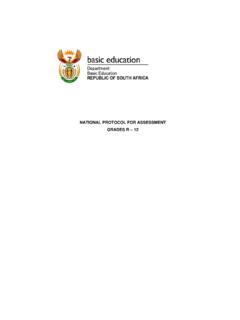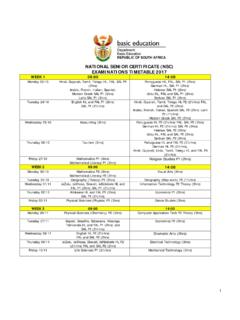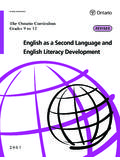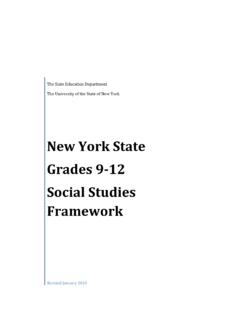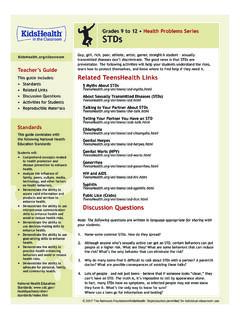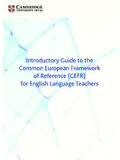Transcription of NATIONAL PROTOCOL FOR ASSESSMENT GRADES R – 12
1 NATIONAL PROTOCOL FOR ASSESSMENT GRADES R 12 iiNational PROTOCOL for ASSESSMENT GRADES R 12, Government Notices No. 722 and No. 723, Government Gazette No. 34600 of 12 September 2011 and amended as: Government Notice No. 1115 and No. 1116, Government Gazette No. 36042 of 28 December 2012. iii Department of Basic Education Sol Plaatje House 222 Struben Street Private Bag X895 Pretoria 0001 South Africa Tel: +27 12 357 3000 Fax: +27 12 323-0601 120 Plein Street Private Bag X9023 Cape Town 8000 South Africa Tel: +27 21 465-1701 Fax: +27 21 461-8110 Department of Basic Education ivCONTENTS ACRONYMS AND ABREVIATIONS vii DEFINITIONS viii CHAPTER 1: INTRODUCING THE POLICY FOR THE ASSESSMENT OF THE NATIONAL CURRICULUM STATEMENT GRADES R 12 1 1.
2 PURPOSE OF THE DOCUMENT 1 2. SUPPLEMENTARY POLICY DOCUMENTS 2 CHAPTER 2: ASSESSMENT OF THE NATIONAL CURRICULUM STATEMENT GRADES R - 12 3 3. THE IMPORTANCE OF ASSESSMENT 3 4. TYPES OF ASSESSMENT 3 CHAPTER 3: FORMAL ASSESSMENT IN THE NATIONAL CURRICULUM STATEMENT GRADES R - 12 6 5. THE COMPOSITION OF FORMAL ASSESSMENT 6 6. SCHOOL-BASED- ASSESSMENT 6 7. PRACTICAL ASSESSMENT TASKS 7 8. COMPILATION OF THE SCHOOL-BASED ASSESSMENT AND PRACTICAL ASSESSMENT MARK 8 vCHAPTER 4: FINAL END-OF-YEAR EXAMINATION 12 9.
3 REQUIREMENTS FOR GRADES 10 AND 11 12 10. REGISTRATION OF ADDITIONAL SUBJECTS 12 11. LANGUAGE MEDIUM RELATED TO THE EXAMINATION QUESTION PAPER 13 12. ABSENTEES 13 13. MINIMUM REQUIREMENTS FOR AN EXAMINATION 14 14. IRREGULARITIES 14 CHAPTER 5: RECORDING AND REPORTING OF LEARNER PERFORMANCE 15 15. RECORDING 15 16 REPORTING 15 17. PRINCIPLES OF RECORDING AND REPORTING 16 18. RECORDING AND REPORTING IN GRADES R 3 18 19. RECORDING AND REPORTING IN GRADES 4 6 18 20. RECORDING AND REPORTING IN GRADES 7 9 19 21. RECORDING AND REPORTING IN GRADES 10 12 20 CHAPTER 6: TEACHERS FILES 22 22.
4 REQUIREMENTS FOR TEACHER FILES 22 CHAPTER 7: MANAGEMENT OF SCHOOL ASSESSMENT RECORDS 23 23. ASSESSMENT RECORDS 23 24 RECORD SHEETS 23 25. REPORT CARDS 24 26. SCHEDULES 26 viCHAPTER 8: MANAGEMENT OF SCHOOL LEARNER PROFILES 28 27. LEARNER PROFILE 28 28. ADMINISTRATION 28 CHAPTER 9: ASSESSMENT OF LEARNERS WITH SPECIAL NEEDS 30 29.
5 ASSESSMENT , PROGRESSION AND CERTIFICATION OF LEARNERS WHO EXPERIENCE BARRIERS TO LEARNING 30 CHAPTER 10: REPEAL OF POLICY AND TRANSITIONAL ARRANGEMENTS 32 30. REPEAL OF POLICY 32 31. TRANSITIONAL ARRANGEMENTS 32 32. SHORT TITLE AND COMMENCEMENT 33 ANNEXURES 34 viiACRONYMS AND ABBREVIATIONS GET General Education and Training FET Further Education and Training LoLT Language of Learning and Teaching NCS NATIONAL Curriculum Statement NQF NATIONAL Qualifications Framework NSC NATIONAL Senior Certificate SAQA South African Qualifications Authority HL Home Language FAL First Additional Language SAL Second Additional Language viiiDEFINITIONS ASSESSMENT body means an ASSESSMENT body as defined in the General and Further Education and Training Quality Assurance Act, 2001 (Act No.)
6 58 of 2001); candidate - means a learner who has enrolled in his or her grade 12-year of the NATIONAL Senior Certificate programme and who has registered for the NATIONAL Senior Certificate final examinations; certification means the formal recognition of a qualification or part qualifications awarded to a successful learner; condonation means the relaxation of promotion requirements as contemplated in paragraph 29(1)(b) of the policy document, NATIONAL policy pertaining to the programme and promotion requirements of the NATIONAL Curriculum Statement GRADES R 12; Curriculum and ASSESSMENT Policy Statements - means the policy documents stipulating the aim, scope, content and ASSESSMENT for each subject listed in the NATIONAL Curriculum Statement GRADES R 12; Department of Basic Education - means the NATIONAL department responsible for basic education which include general and further education and training; evidence of learner performance - means the collection of the learner s work that is used to compile his or her internal ASSESSMENT mark; examination means the conduct of an end-of-term and/or once-off end-of-year ASSESSMENT ; external ASSESSMENT means any ASSESSMENT activity, instrument or programme where the design, development and implementation has been initiated, directed and, coordinated by Provincial Education Departments and the Department of Basic Education either collectively or individually.
7 First Additional Language level means the language proficiency level that reflects ixthe basic intercultural and interpersonal communication skills needed in social situations and the cognitive academic skills essential for learning across the curriculum. The First Additional Language level can be used as the language of teaching and learning from the Intermediate Phase onwards; Formal ASSESSMENT Task ( ASSESSMENT of learning) means a systematic way of ASSESSMENT used by teachers to determine how well learners are progressing in a grade and in a particular subject; full-time candidate - means a candidate who has enrolled for tuition in a full-time capacity at a public or independent school or any other registered institution and who presents the required number of subjects as stipulated in the policy document, NATIONAL policy pertaining to the programme and promotion requirements of the NATIONAL Curriculum Statement GRADES R 12; grade - means a grade as defined in the South African Schools Act, 1996 (Act No.)
8 84 of 1996); Head of Department - as defined in the South African Schools Act, 1996 (Act No. 84 of 1996); Head of the institution - as defined in the South African Schools Act, 1996 (Act No. 84 of 1996); Home Language level - means the language proficiency level that reflects the mastery of interpersonal communication skills required in social situations and the cognitive academic skills essential for learning across the curriculum. This level also provides learners with a literary, aesthetic and imaginative ability that will provide them with the ability to create, imagine, and empower their understandings of the world they live in; immediate family - means father, mother, brother, sister, grandparents, husband, wife, legal partner, children, guardians and foster parents; x immigrant candidate - means a learner as contemplated in paragraph 4(1)(a) of the policy document, NATIONAL policy pertaining to the programme and promotion requirements of the NATIONAL Curriculum Statement GRADES R 12; independent school - means a school registered or deemed to be registered in terms of section 46 of the South African Schools Act, 1996 (Act No.
9 84 of 1996); Informal ASSESSMENT Task (( ASSESSMENT for learning) means the building towards formal ASSESSMENT ; internal ASSESSMENT - means an ASSESSMENT , contemplated in section 1 of the General and Further Education and Training Quality Assurance (Act No. 58 of 2000); language levels means the proficiency levels at which all official and non-official languages are offered at school, Home Language, First Additional Language and Second Additional Language levels; learner - as defined in the South African Schools Act, 1996 (Act No. 84 of 1996); learner who experiences barriers to learning means any learner who has difficulties in accessing the curriculum due to several factors that serve as barriers; Language of Learning and Teaching (LoLT) means the language chosen by a school s governing body in consultation with parents. It is the language teachers use to instruct and to assess.
10 It is also the language of the textbooks provided in the school; MEC - means a Member of the Executive Council, as contemplated in section 1 of the South African Schools Act, 1996 (Act. No. 84 of 1996); NATIONAL Qualifications Framework (NQF) means the ten-level framework to provide for the registration of NATIONAL standards and qualifications as contemplated in the NATIONAL Qualifications Framework Act, 2008 (Act No. 67 of 2008); NATIONAL Senior Certificate means a qualification at Level 4 on the NATIONAL Qualifications Framework (NQF) which is awarded to grade 12 candidates who comply xiwith the NATIONAL policy requirements set out in the policy document, NATIONAL policy pertaining to the programme and promotion requirements of the NATIONAL Curriculum Statement GRADES R 12; part-time candidate means a grade 12 learner who has registered at an examination centre for part-time studies and may register for any number of subjects in one examination sitting; progression means the movement of a learner from one grade to the next, excluding grade R, in spite of the learner not having complied with all the promotion requirements.
